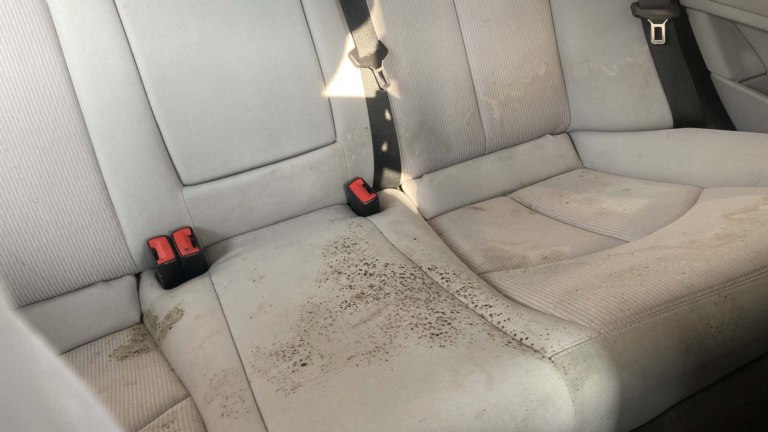Black Mould
Black mould, scientifically known as Stachybotrys chartarum, is a household hazard that often hides in plain sight. It thrives in damp, humid environments and can pose serious health risks to individuals and families.

What is Black Mold?
Black mould is a type of fungus that can appear as greenish-black and slimy. It is commonly found in areas with high humidity and moisture, such as under seats, especially child seats, on seatbelts, and in the boot of your car. Black mould may not always present itself with visible signs, making it a hidden threat. This is especially the case in cars which often have black interiors, meaning you are more likely to smell the problem before you see it.
As with all toxins, it's the dose makes the poison. As a car is a small, confined space, this means black mould is a particular hazard in vehicles as you may be exposed to more concentrated levels of the mould spores.
Health Risks Associated with Black Mold
Exposure to black mould can have adverse health effects, especially on the respiratory system. The mycotoxisn produced by this mould can lead to symptoms such as coughing, wheezing, throat irritation, nasal stuffiness, skin rashes, and eye irritation. In severe cases, it can trigger asthma attacks, bronchitis, or other respiratory issues. Vulnerable groups, including individuals with weakened immune systems, children, and the elderly, are at higher risk of experiencing these health problems.
Common Signs of Black Mold Infestation
Identifying signs of black mould in your vehicle is crucial. Musty odours, visible mould growth (which may vary in appearance), and unexplained health issues could be indicators of a black mould problem. Addressing any water leaks, moisture problems, or condensation in your car promptly can help prevent black mould growth.

Dealing with Black Mold
If you suspect a significant black mould infestation, it is essential to consult a professional.
Disturbing black mould can release spores into the air, potentially exacerbating the problem and posing health risks. While there are DIY mould removal methods, tackling black mould without the proper equipment and expertise is not recommended.
Conclusion
Black mould may be a hidden threat, but understanding its dangers is crucial for maintaining a safe and healthy vehicle. You are likely to be able to smell it before you can see it, so be very aware of damp, musty smells when you enter your vehicle. Being vigilant about identifying and removing black mould in your car can help protect your family's well-being. Seek expert advice when dealing with significant mould issues to ensure the safety of yourself and loved ones.
References:
NHS UK. (2022). Mould and Damp in Your Home.
Health and Safety Executive (HSE). (2022). Mould at Work.
Mayo Clinic. (2022). Black Mold Exposure: What It Is and Isn't.
Written by Danny Argent. Last updated 22/04/2024 16:06
